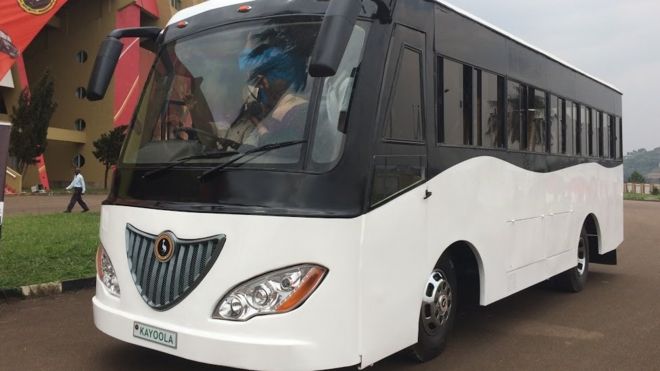By George Aine
Electric cars are taking centre stage in the automotive industry across the globe. Mass production of the same has started and they are becoming a common sight in developed cities.
Renowned carmakers such as Nissan, Volvo, Tesla and Porsche have already embarked on mass electric car production and hope to begin selling largely electric cars by 2040 and limiting internal combustion engine vehicles to a few heavy-duty vehicles.
However, the question is whether a third world country like Uganda is ready for electric vehicles.
Mr Paul Isaac Musasizi, the chief executive officer of Kiira Motors Corporation who have built Uganda’s first solar energy car – Kayoola Solar Bus, is optimistic that the added benefits of electric cars will make Ugandans buy them.
According to Musasizi, many Ugandans are driving vehicles over 15 years old, which are not fuel efficient and heavy pollutants and now with the government ban on such automobiles, many will start seeing the benefits of electric powered cars.
According to Mr Dickson Kwesiga, a mechanical engineer, the main driver for the electric vehicle is the availability of electricity and a charging port. He says with the power stations coming up, soon the supply of electricity may be higher than the local demand
“Electricity is the fuel of the car and without electricity, it is impossible to use the vehicle. Fortunately, effort has been made to avail electricity consistently,” he says.
With the power stations coming up, soon the supply of electricity may be higher than the local demand. This is good for the electric vehicle, Kwesiga adds.
However, using electric cars comes with the need for readily available charging ports.
Although the cars come with charging ports that can connect to the common three-pin wall plug, there is a need for fast-charging 15-pin plugs made specifically for electric cars.
Kwesiga says the existing petrol stations need to adopt these charging ports to suit the changing need. There will be plenty of work installing electric vehicle charging stations – in homes, offices, car parks, retail locations and on-street parking too.
For long-distance travel, providing electric vehicle charging to travelers may be a new business opportunity for restaurants and retail locations where people can pass the time as they charge.
“The existing mechanics and technicians will definitely lose jobs unless they adapt very quickly. It has been common for mechanics to shun electrical systems, but with the electric vehicle, there is no need for engine oil change, or any engine repairs for that matter,” Kwesiga says.
He is also concerned that our government is not ready to adapt to electric cars because it charges and collects big amounts of revenue from fuel and an environment tax based on engine size.
Another key concern would be on maintenance. However, Kwesiga says the maintenance and running costs of the electric vehicle are much lower than those of the fossil fuel guzzlers.
“This has a direct positive impact on the consumers although it has a negative impact on government tax revenue and businesses that are heavily reliant on the expenditures accruing from vehicle usage,” he adds.
Another good news for electric car enthusiasts is that the initial investment in electric cars is gradually coming down.
The first Tesla electric vehicle cost around $250,000 (Shs875 million), which has since gone down to as low as $10,000 (Shs35 million) in Japan.
Therefore, the country must move with the times and adapt very fast. Otherwise, we will forever be the dumping ground for the world’s surplus second-hand internal combustion engine vehicles.

